New survival MMO Nether wants you to be afraid, but not alone, in a broken city
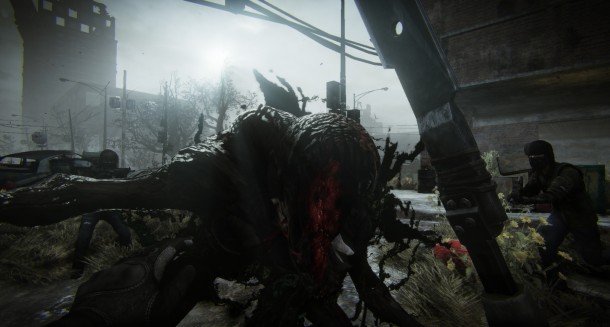
The multiplayer survival genre continues to grow. Add Nether to that category, a new open-world shooter in development by Chicago-based studio Phosphor Games . Revealed exclusively to PC Gamer today, Nether will feature persistent online worlds where players are left to live their own stories, create alliances and secure safe houses to survive. But interestingly, it's a post-apocalyptic world that won't include zombies.
A decade after an unknown cataclysm destroys humanity, the survivors in the world of Nether work just to get by. Wandering the shattered bones of once-great cities, those left behind scavenge, make alliances, fight bandits and live in fear of the mutated creatures that hunt them.
The modern multiplayer survival game may have been pioneered by DayZ and copied (poorly) by Infestation: Survivor Stories (aka The War Z) , but there's still a lot of room for the genre to explore. Nether hopes to capture that feeling of freedom and anarchy that DayZ does so well, but to do so inside a very different environment and with smoother, first-person gunplay. In particular, Nether's focus will be on an urban, vertical world partially inspired by the West Loop of Chicago.
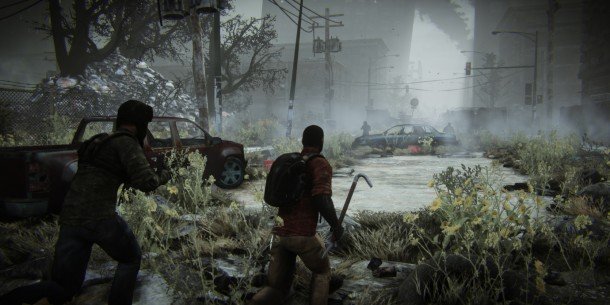
“The city being so vertical and three-dimensional and dense really is a very different gameplay experience,” Chip Sineni, creative director for Phosphor Games, told me. “A lot of our guys were big fans of DayZ early on... but they're very complementary kinds of games. It's not like one kind of game is necessarily better than another, they're just very different kinds of experiences.”
Nether's urban density is at once its greatest asset and its greatest risk. Wide-open fields in DayZ take players far away from each other, but a good sniper rifle or binoculars can help close the distance and make sure that players are forced to interact with each other, for good or bad. In an urban environment, though, players can pass within yards of each other without being aware of it. Looting an empty apartment building, for example, would make you invisible to anyone passing on the street below.
Making this isolation feel fun is a big challenge, and Sineni acknowledges that Phosphor is still trying to find the perfect balance between big and too big, dense and too cluttered. Up to 64 players will be able to log onto a server at a time, so finding space for all of those players to feel alone and yet part of a community of survivors will be a thin line to walk.
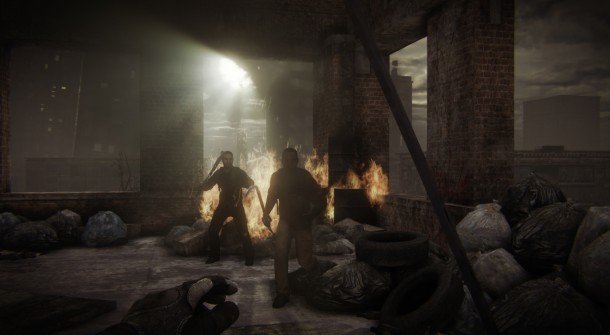
“There's just so much foliage and rubble and debris that we're trying to figure out how we make it work. It's very easy in a dense city to just hide,” Sineni said. “In our game it's very easy for someone to be very close to you, but you're behind some garbage so they can't see you.”
The biggest gaming news, reviews and hardware deals
Keep up to date with the most important stories and the best deals, as picked by the PC Gamer team.
With the freedom of a persistent open-world environment, a lot of player-driven stories will be free to emerge. Temporarily teaming up with a stranger could be the start of a new friendship or the first step to getting stabbed in the back, and players will be free to trade or steal needed supplies. Voice chat support will be built into Nether (a feature that Infestation sorely lacked at launch) so players can approach each other with a friendly greeting and their hands on their weapons.
A player or group can clear out and control a building or floor, turning an abandoned townhouse into an encampment for as long as they have the strength to hold it. The most powerful player groups may be able to clear and set up camp in office buildings or skyscrapers and live safely above the streets. Like in DayZ, players will log in to find themselves exactly where they last logged out. With good security, it will be possible to build a place that feels like home.
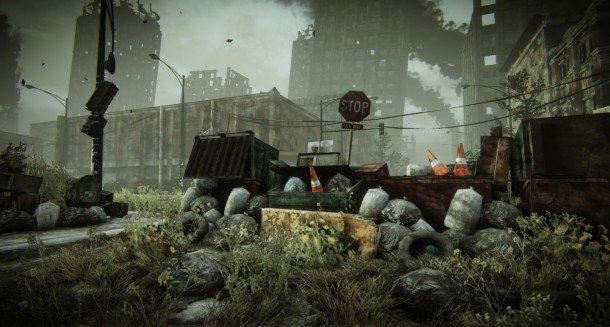
And then there are the monsters. Phosphor is breaking free of the restrictions imposed by gaming's now-ubiquitous Zombie plague by creating a brand-new enemy with its own set of rules. The Nether are mutated creatures that hunt mostly by sound. If they catch your trail, though, the meandering beasts become aggressive, terrible foes. Teleporting around the map, they circle behind you with unnatural screams, disappearing and reappearing as you try to shoot them.
“We wanted it to be where even one creature is something to be terrified about if you don't have the gear,” Sineni said. “In some ways, it's a multiplayer horror game, where there's something out there.” He references the movie Alien , where one organism is devastating and can wipe out anybody. That's the feeling the team is looking for: fear of being hunted by a formidable opponent.
The Nether will be able to leap high into the air to better navigate the vertical spaces of the city, and if you start to run away they will teleport to chase you down. “You can outrun a creature if you make some kind of bee line and just keep running and running and don't look back; there's a chance you'll get away. But if you turn to engage it, one of you is going to die: you or him.”
Dedicated servers will have the option of a “hardcore” mode with true permadeath, but the default server setting will just take your equipment away, leaving you with your customized character, name and earned skills and experience points. Sineni hints at possible RPG elements, but the team is still working on deciding what those will be.
Phosphor will make those decisions and guide the overall feel of the finished game by enlisting help from the community. Nether is planned for a closed beta release this fall and will take player feedback to decide what works and what doesn't until Nether is ready for launch.
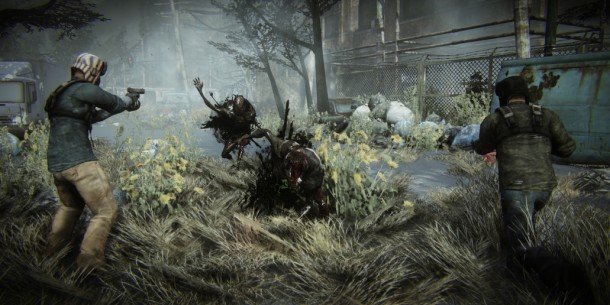
“Something we really want to see is, rather than keep focusing on features that players may not care about, we really want to get it out there early and then have the community guide us,” Sineni said. “Maybe what we think is going to be a really big feature is something that you don't care about, and you'd rather us focus on this other thing.”
Nether is now taking registrations for players to get into the closed beta and help give feedback for the finished game. For more screenshots, check out page 2 of this post; you can also see more screenshots and video on Nether's website .

